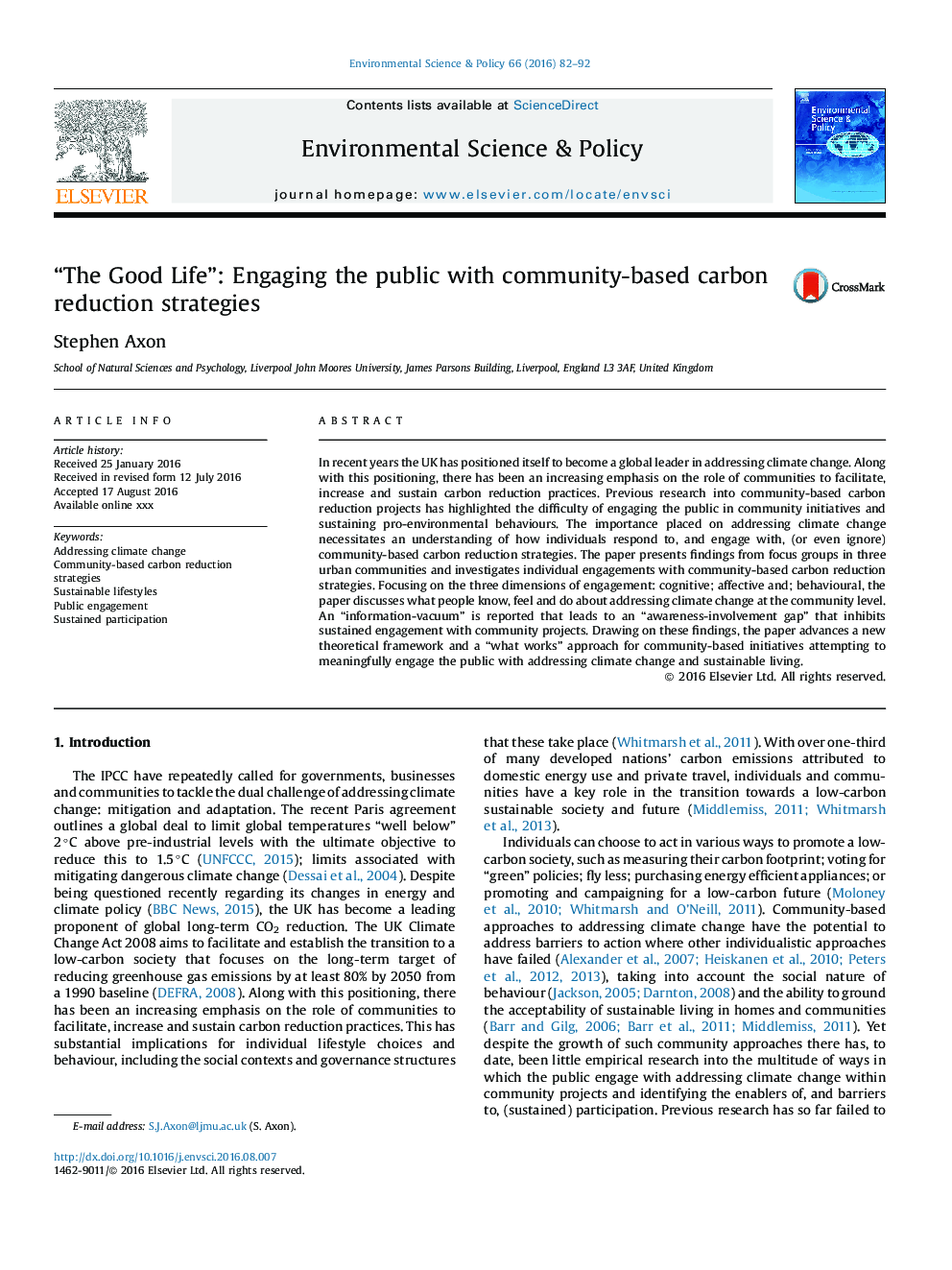| Article ID | Journal | Published Year | Pages | File Type |
|---|---|---|---|---|
| 1053408 | Environmental Science & Policy | 2016 | 11 Pages |
•Engagements with community-based carbon reduction strategies are investigated.•An “information-vacuum” leads to an “awareness-involvement gap” that inhibits engagements.•A new conceptual framework illustrates factors affecting (sustained) participation.•Sustained participation can be enabled through applying continuous interventions.•A “what works” approach outlines suggested interventions for meaningful engagement.
In recent years the UK has positioned itself to become a global leader in addressing climate change. Along with this positioning, there has been an increasing emphasis on the role of communities to facilitate, increase and sustain carbon reduction practices. Previous research into community-based carbon reduction projects has highlighted the difficulty of engaging the public in community initiatives and sustaining pro-environmental behaviours. The importance placed on addressing climate change necessitates an understanding of how individuals respond to, and engage with, (or even ignore) community-based carbon reduction strategies. The paper presents findings from focus groups in three urban communities and investigates individual engagements with community-based carbon reduction strategies. Focusing on the three dimensions of engagement: cognitive; affective and; behavioural, the paper discusses what people know, feel and do about addressing climate change at the community level. An “information-vacuum” is reported that leads to an “awareness-involvement gap” that inhibits sustained engagement with community projects. Drawing on these findings, the paper advances a new theoretical framework and a “what works” approach for community-based initiatives attempting to meaningfully engage the public with addressing climate change and sustainable living.
